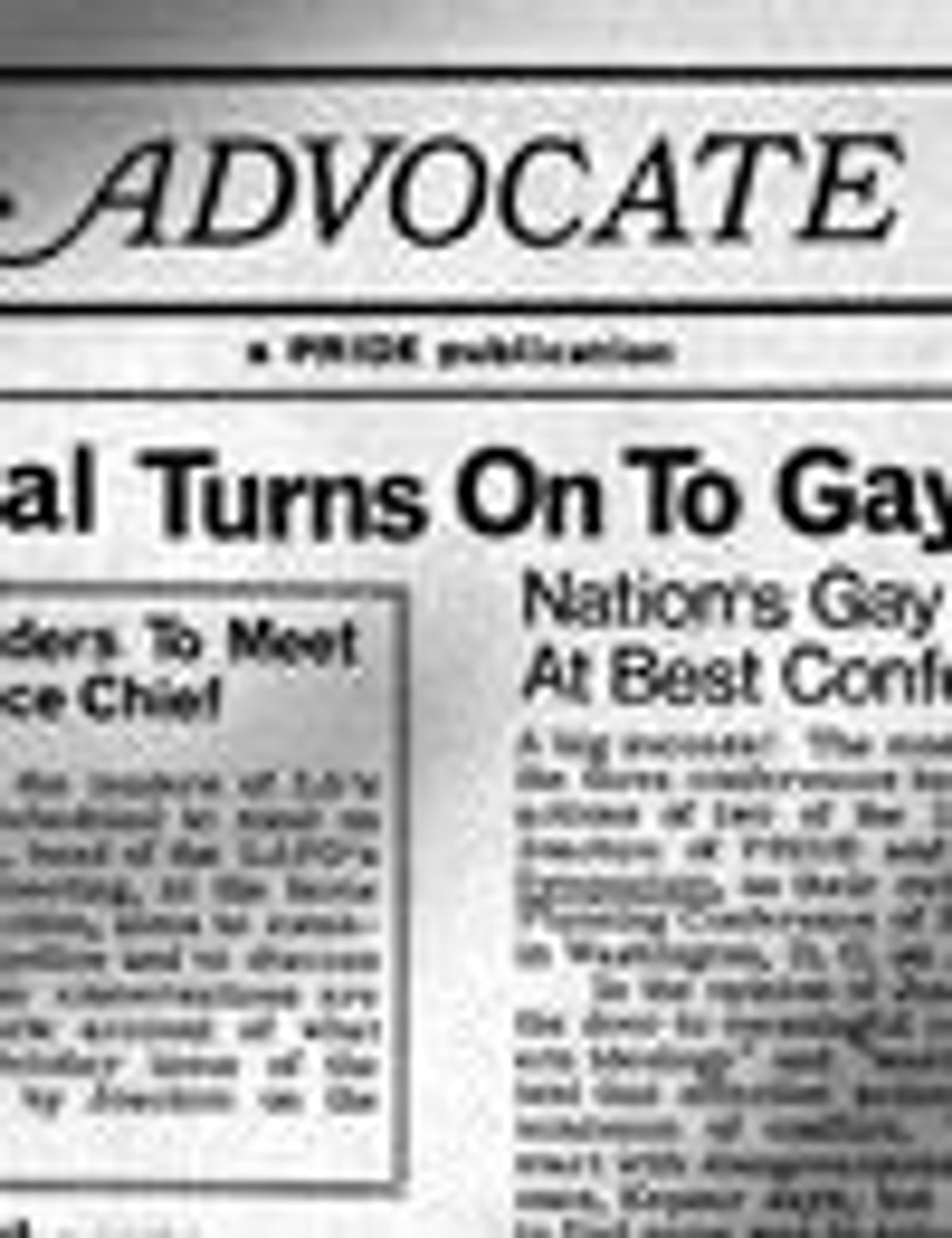You could say The Advocate started when the cops pushed around one gay man too many. In 1966 the Los Angeles Police Department was raiding the city's gay bars at will, vandalizing the premises, arresting and roughing up the patrons. One man, Dick Michaels (who, like many of his contemporaries, used a "nom de gay" for self-protection), experienced that abuse and refused to get over it. He wasn't alone. After a brutal raid on New Year's Eve, 1966, at the Black Cat bar in L.A.'s Silver Lake district, a local gay group called PRIDE organized a series of protests in front of the bar. The organization had a newsletter. Dick Michaels rechristened it The Los Angeles Advocate and later bought it for a dollar. The first edition, published in September 1967, was 12 pages long; 500 copies were turned out by hand on a mimeograph in the basement of ABC Studios.
The excerpt below--from 1994's Long Road to Freedom, which follows our growth from those first days--proves that The Advocate owned its provocative personality from the start. Sexy, smart, outraged, outrageous: That's who we are as a magazine, and that's who we are as a people. The Advocate belongs to all of us.
The Advocate's original editor-publisher had an unlikely background for founding the first effective national gay newspaper: He edited a chemical trade journal.
One night in 1966, Dick Michaels, a Ph.D in chemistry, went out with his lover, Bill Rand, to the Red Raven on Melrose Avenue. Though they had entered the bar only moments before the police did, they were caught in a raid, and Rand was charged with giving blow jobs on the dance floor. That night, Michaels became a gay rights activist.
In other matters, Michaels remained conservative and unsympathetic to the "back of the paper," where reviews and interviews ran. One writer recalled that the editor hated the new musical Hair, since it was about hippies who refused to go in the Army. Still, Michaels's newspaper was a devoted vehicle for activists; if anyone took a photo of any demonstration, chances were it would run in The Advocate.
Both used pseudonyms: Michaels was really named Richard Mitch, and Rand was Bill Rau. Rand, a former callboy, was younger than Michaels. Colleagues say he was as inefficient as Michaels was efficient, and because Rand was The Advocate's first business manager, it's a wonder the paper stayed afloat.
Michaels ran a tight ship. When a reporter was on a long-distance call, he had Rand stand nearby holding an egg timer; when two minutes were up, he cut off the interview, finished or not.
"He had the drive and competence that could get the paper out on time, even if the staff walked out the night before it was due," recalled historian Jim Kepner, an early staff member. "He worked us seven days a week, long hours. But we were thrilled to be in at the beginning."


















































































